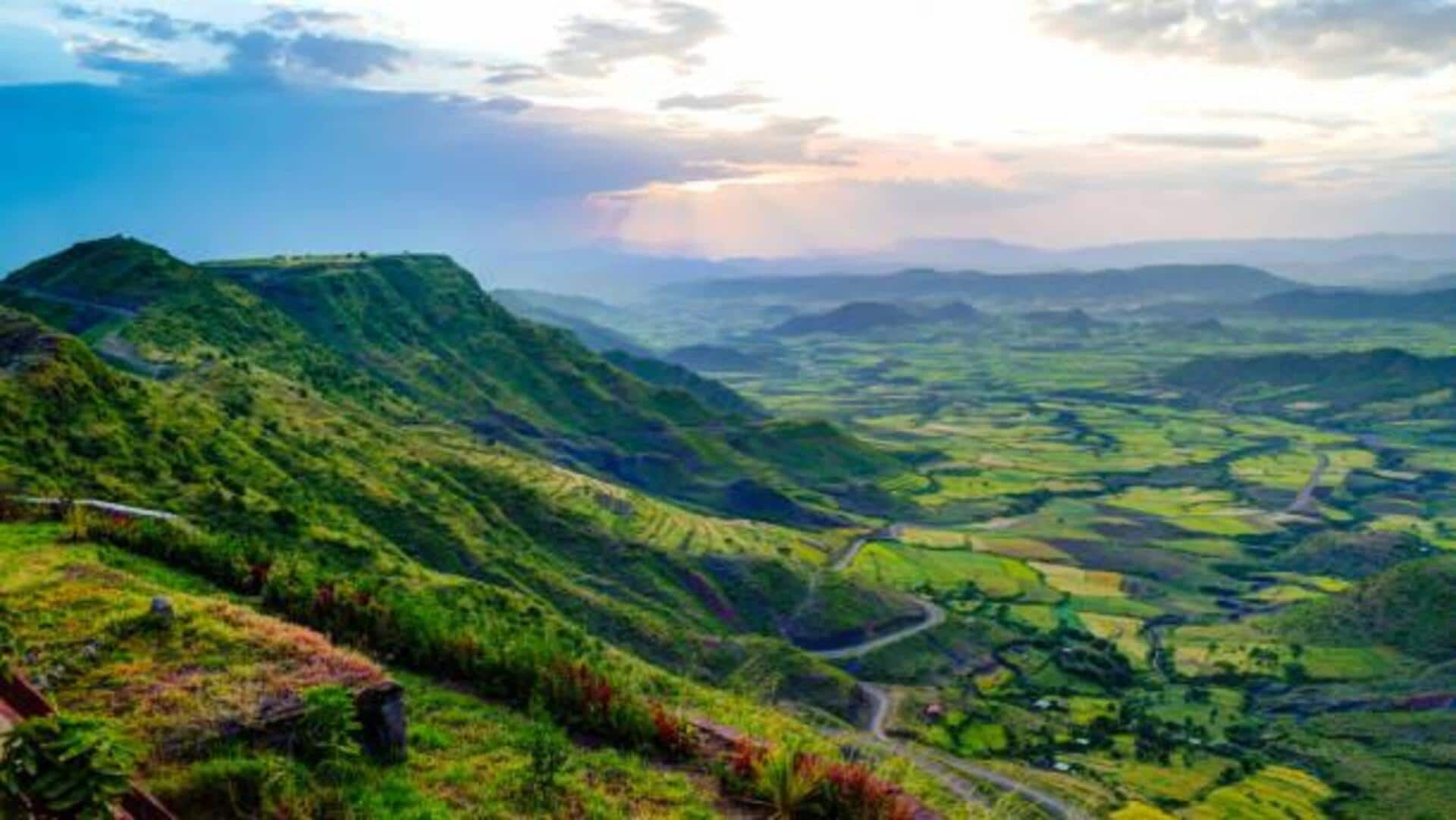
Ethiopia's Simien Mountains: A hidden gem for nature lovers
What's the story
If you're a trekker, you will love the Simien Mountains in Ethiopia. The spectacular landscapes and varied wildlife here will leave you enchanted.
These mountains are home to the Gelada baboon and Ethiopian wolf, making them a paradise for nature lovers.
From breathtaking peaks to valleys, they give you a glimpse of Africa's natural beauty and opportunity to reconnect with untouched wilderness.
Wildlife
Discovering unique wildlife
The Simien Mountains are famous for their rich biodiversity. Trekkers can spot the Gelada baboon, easily identifiable by its unique red chest patch, and the rare Ethiopian wolf.
Bird watchers will be treated to over 180 species of birds including the thick-billed raven and lammergeier.
The region gives a rare opportunity to peer into ecosystems that have remained largely unchanged for centuries, making it a must-visit for wildlife lovers.
Trails
Navigating challenging trails
Trekking in the Simien Mountains includes traversing trails ranging from moderate to difficult levels.
The paths wind through rugged terrains and steep inclines, giving trekkers physical challenges, and rewarding views at every turn.
Proper preparation is a must; sturdy footwear and sufficient supplies are recommended to ensure safety and comfort throughout the journey.
Culture
Experiencing local culture
While trekking through the Simien Mountains, visitors can also engage with local communities that reside within this UNESCO World Heritage site.
These interactions give a glimpse into traditional lifestyles that have been preserved across generations.
You can learn about local customs, crafts, and agricultural practices.
All of this makes for a more wholesome experience, giving you a deeper understanding of how communities coexist harmoniously with nature.
Altitude tips
Preparing for altitude changes
Altitude sickness is a major concern while trekking in high-altitude areas like the Simien Mountains.
Trekkers should acclimatize gradually by passing time at lower elevations before heading up higher trails.
Staying hydrated is extremely important; drinking plenty of water helps stave off symptoms associated with altitude changes like headaches or dizziness.
Paying attention to one's pace ensures an enjoyable trek without overstraining health or stamina levels.